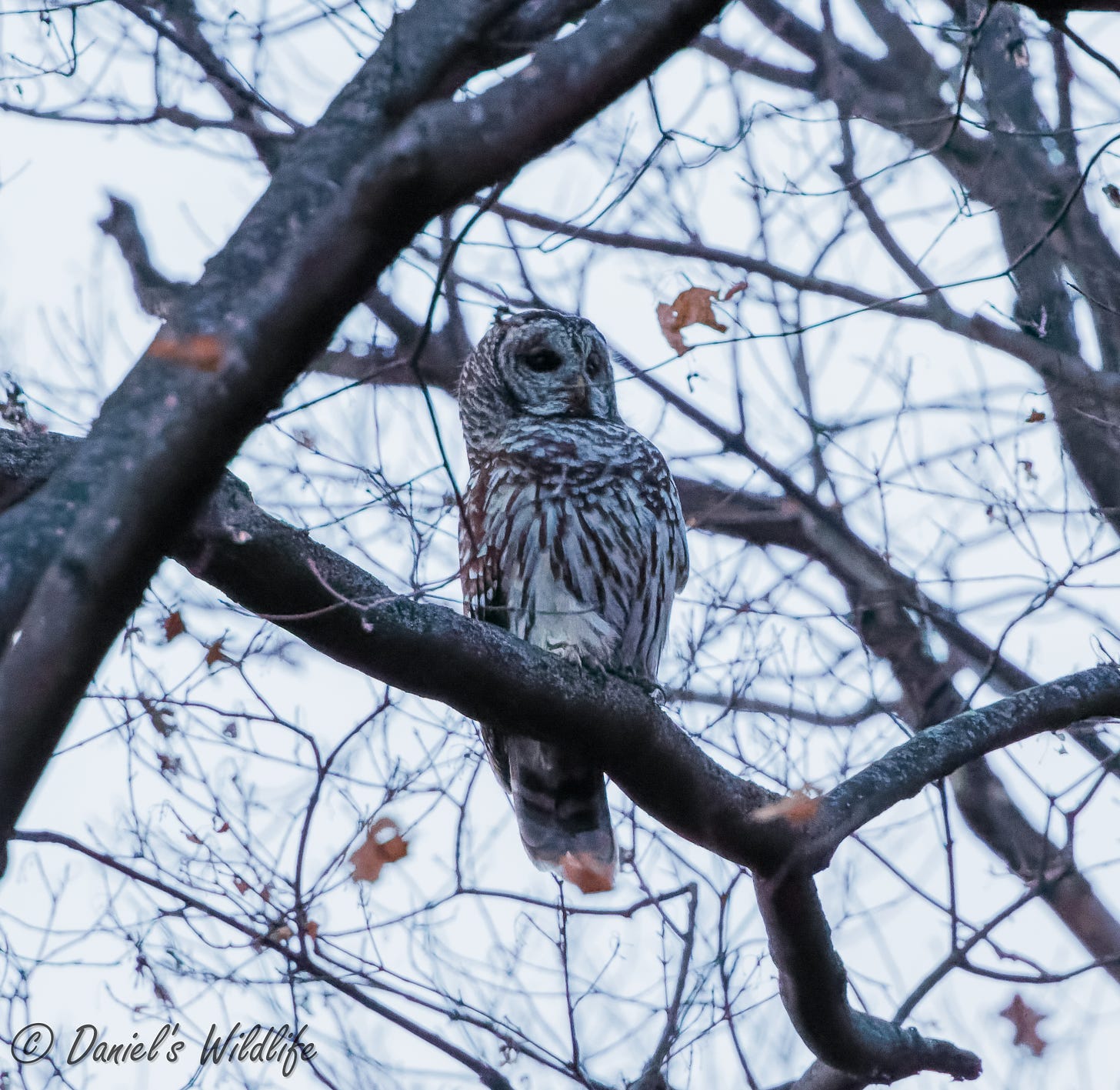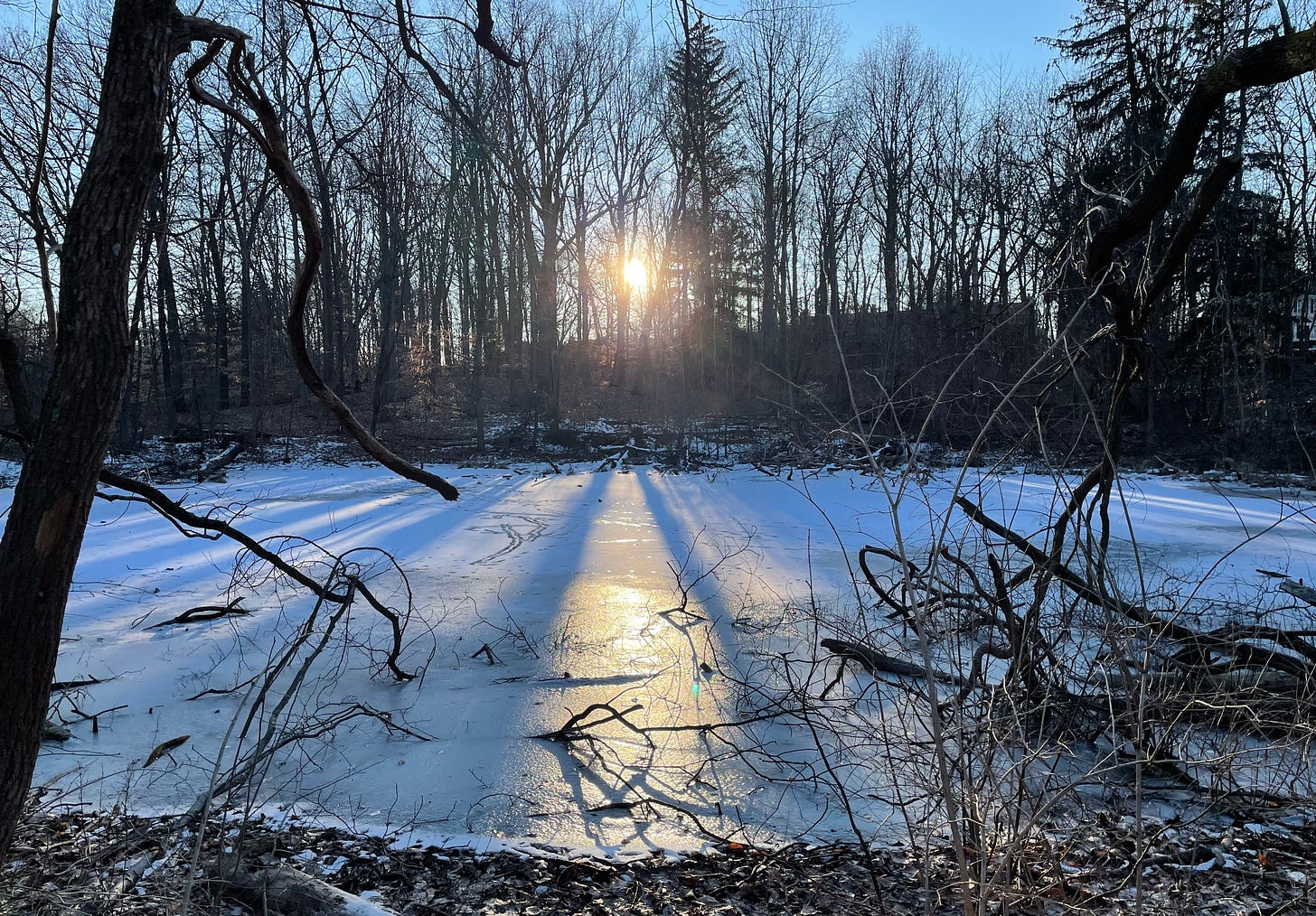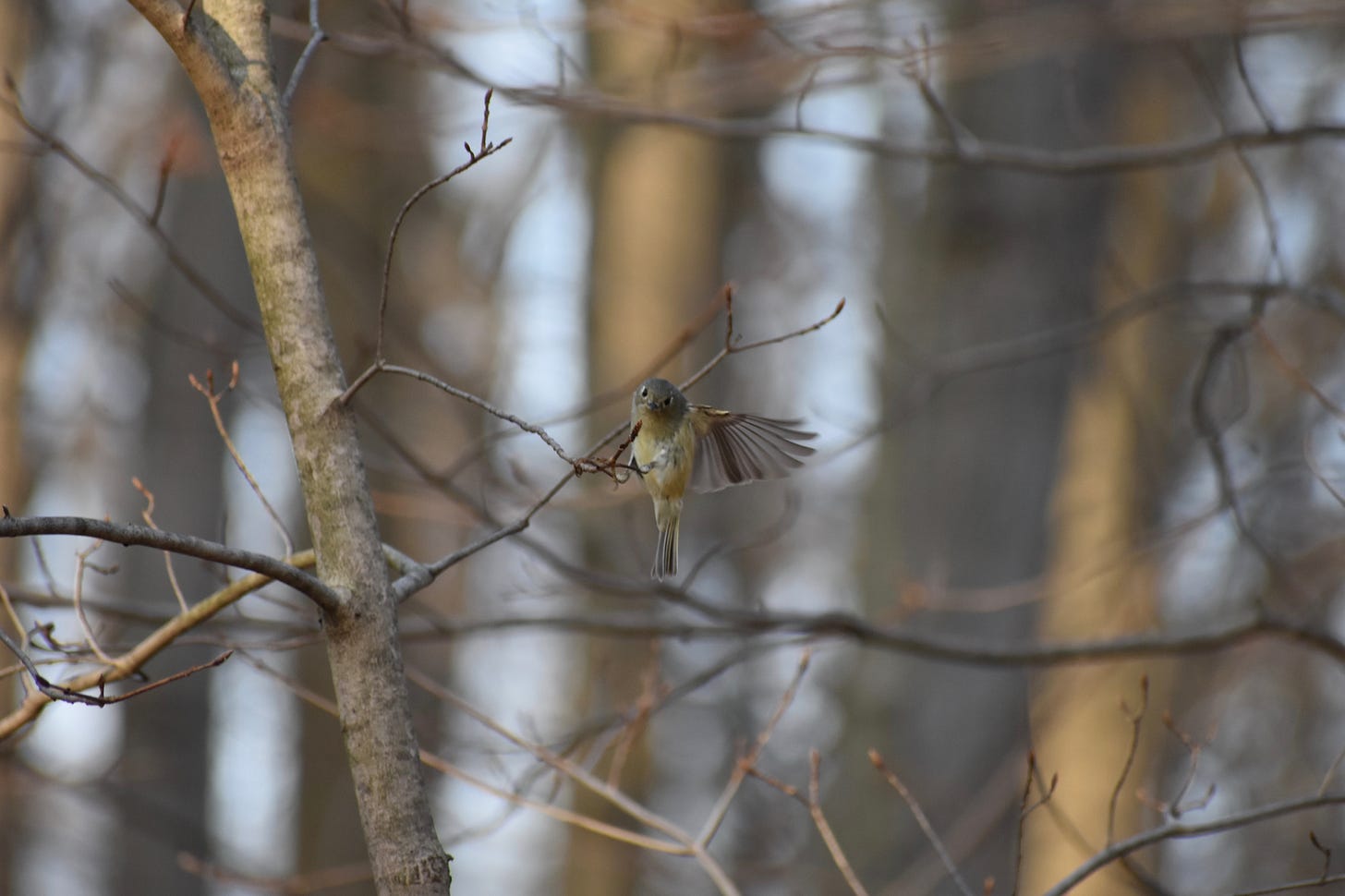Winter wildlife: Interview with Drew student, Daniel Magda
A winter forest landscape reveals mysteries hidden behind the leaves of spring and summer, and Drew University senior Daniel Magda spotted a most elusive animal while walking in Drew Forest in December. His sighting of a Barred Owl, a threatened species in New Jersey ecosystems, underscores the critical importance of preserving these special acres.
Are you often in the forest? I am a senior at Drew with a double major in Biology and Environmental Science working on a Senior Honors thesis on bird migration. I am in the forest a few times a week working and have recorded many unique species of birds including Hummingbirds, Great Egrets, Green and Great Blue Herons, and Red-tailed Hawks.
Have you seen owls before? I have seen and heard Barred Owls before, but this was the first time I was lucky enough to photograph one. Owls are nocturnal, which makes it harder to catch one in a picture. The picture is dark because the sun had already set and it was nearly dark out.
What other animals do you see? Foxes, raccoons, groundhogs, flying squirrels, turtles, and several species of salamanders
Did the owl see you or react to you? I was quite far away from the owl and I was very quiet so he didn't react to me. The picture looks as though I am close because of the telephoto camera lens. It's important to give wildlife as much space as possible.
Did you see the tree cavity that could be its nest? No, but I have seen nesting cavities and or nests of several other species while in the arboretum. It is important for larger birds to have these environments.
According to the Raptor Trust, Northern New Jersey is home to five owl species: Great Horned, Barn, Northern Saw-whet, Barred and Eastern Screech Owls. Three more species can be spotted during the winter on their migration paths: Snowy, and Long-eared and Short-eared Owls. These animals rely on our woods to survive, building nests in tree cavities and feeding on the rodent populations that would otherwise grow unchecked. Their role in the food chain is specific and irreplaceable, as is their beauty and the fascination they hold. By supporting the preservation of forests and swamps, New Jersey can continue to boast a thriving owl population.
3 Tips for Winter Wellness
A winter walk in the Forest is the perfect antidote to short winter days.
Take time to reflect. Spending time in nature is proven to reduce stress with some doctors writing prescriptions for time in nature. The quiet beauty of the Forest will leave you feeling refreshed.
Get a health boost. Outdoor winter walks strengthen your immunity, lungs and heart. Make it social! Bring a friend to the experience the Forest’s winter wonders.
Watch for birds. Bare tree branches provide better visibility to spy your feathered forest friends from owls and hawks to woodpeckers. The Merlin Bird app can help you identify birds based.
Madison Resident, Dorothy Wilson, captured some excitement during her walk:
“Yesterday, Drew was just fabulous. A gorgeous owl skimmed soundlessly across round pond to safety amongst the densely wooded area near the playing fields. It was escaping a raucous, caucus of crows who lost sight of the owl, so decided to pick on each other a little bit. Then two giant soaring turkey vultures began their circles and ellipses with memories of a raccoon carcass they had recently disassembled. Finally returning, passing Long Pond, the Kingfisher, I had been hearing showed its lovely self, a flash of silver and blue, until it landed on an outstretched, dead, limb, watching for breakfast. They are glorious birds.”
We start the year with gratitude to all our supporters. Here’s the envelope stuffing team behind our year end appeal. We’re an all-volunteer org and welcome any who want to lend their skills! Please email us with your volunteer interest.






